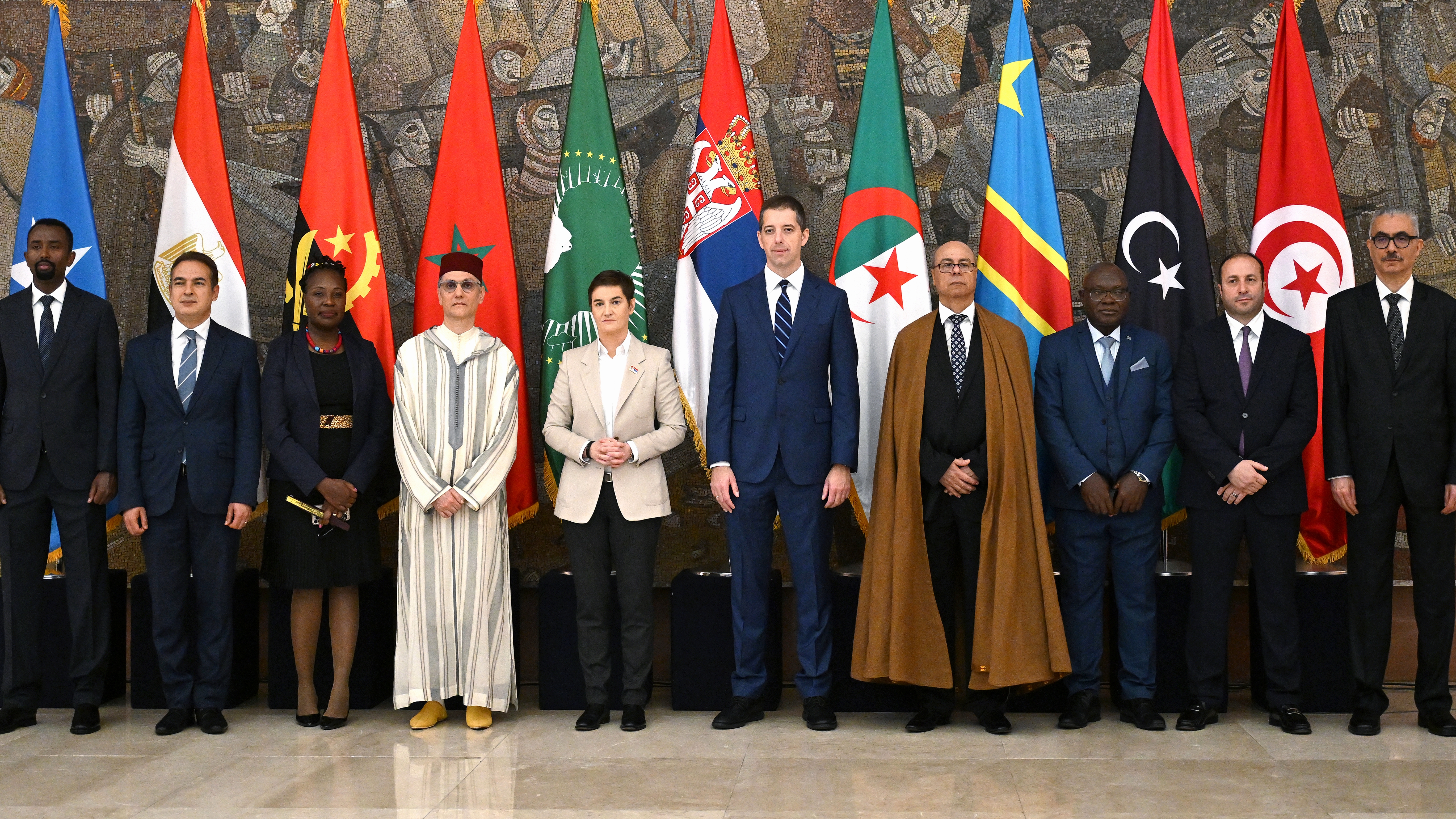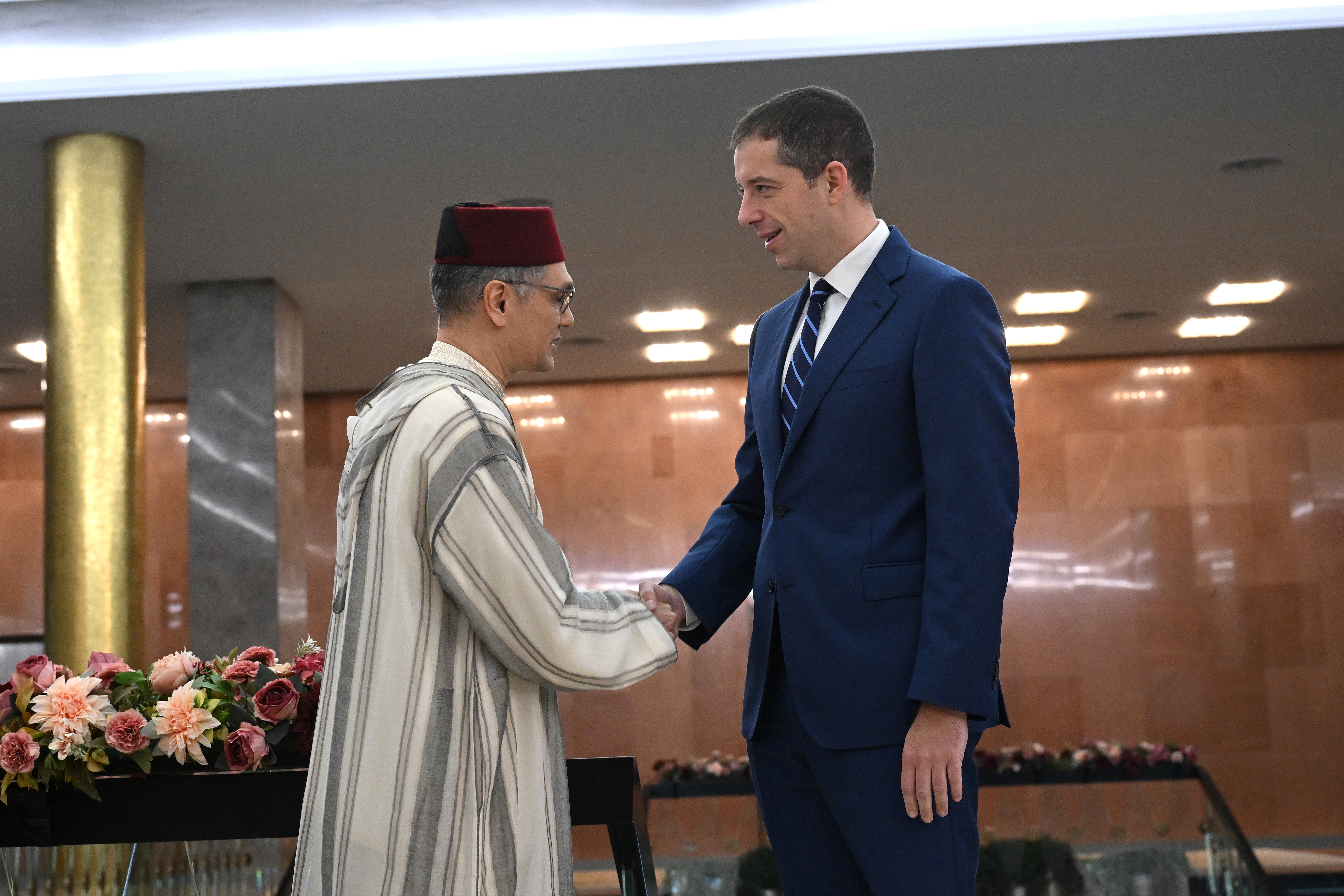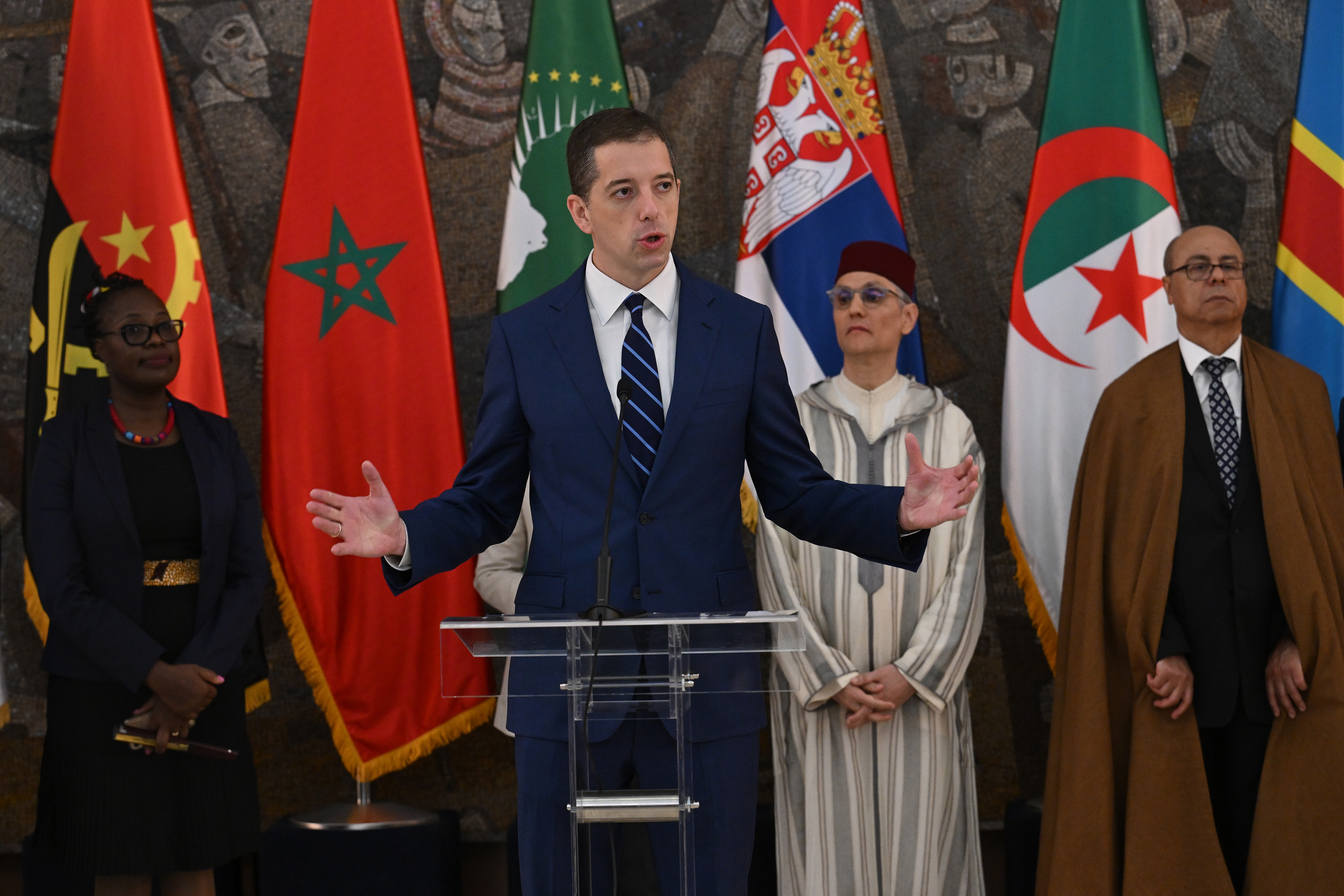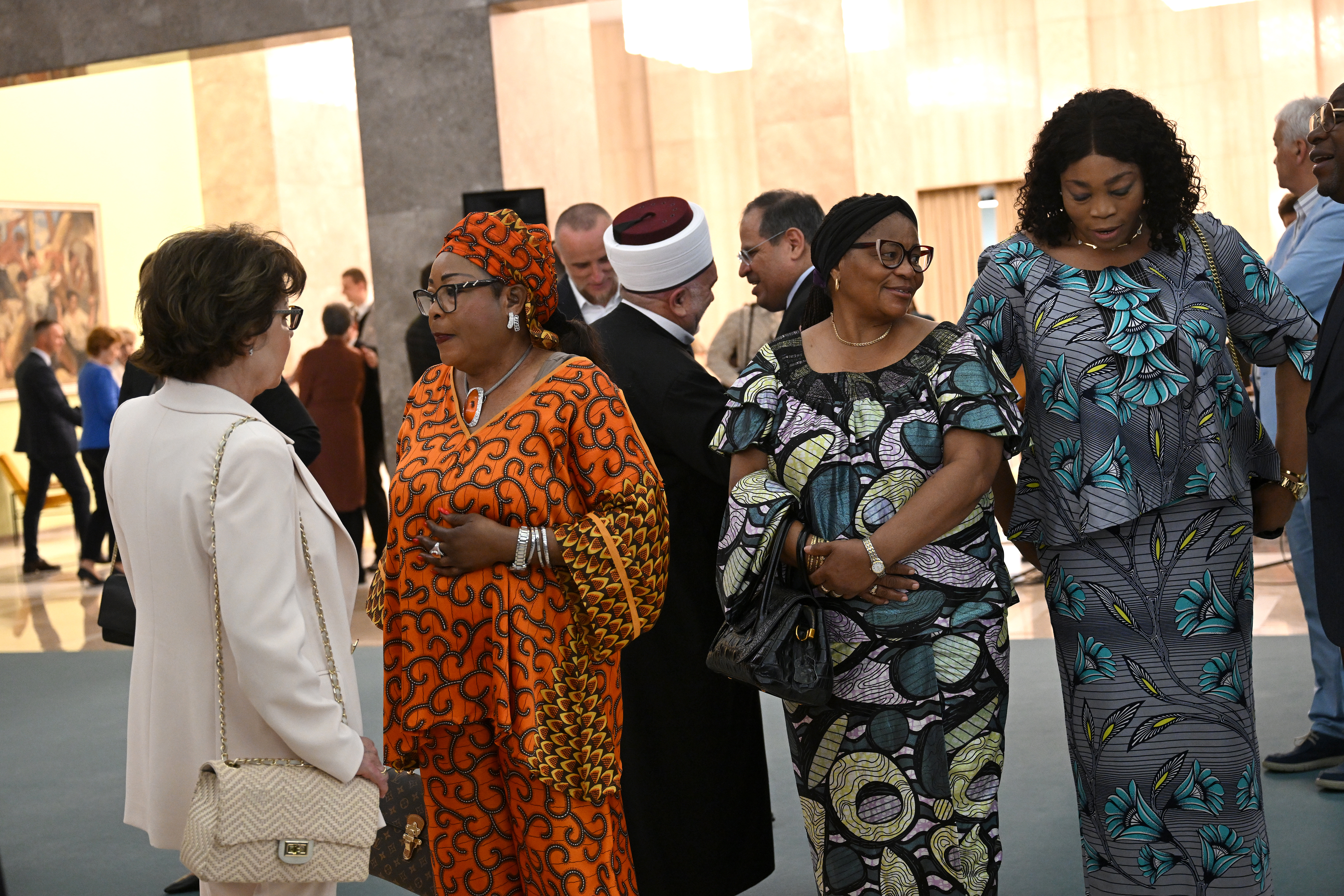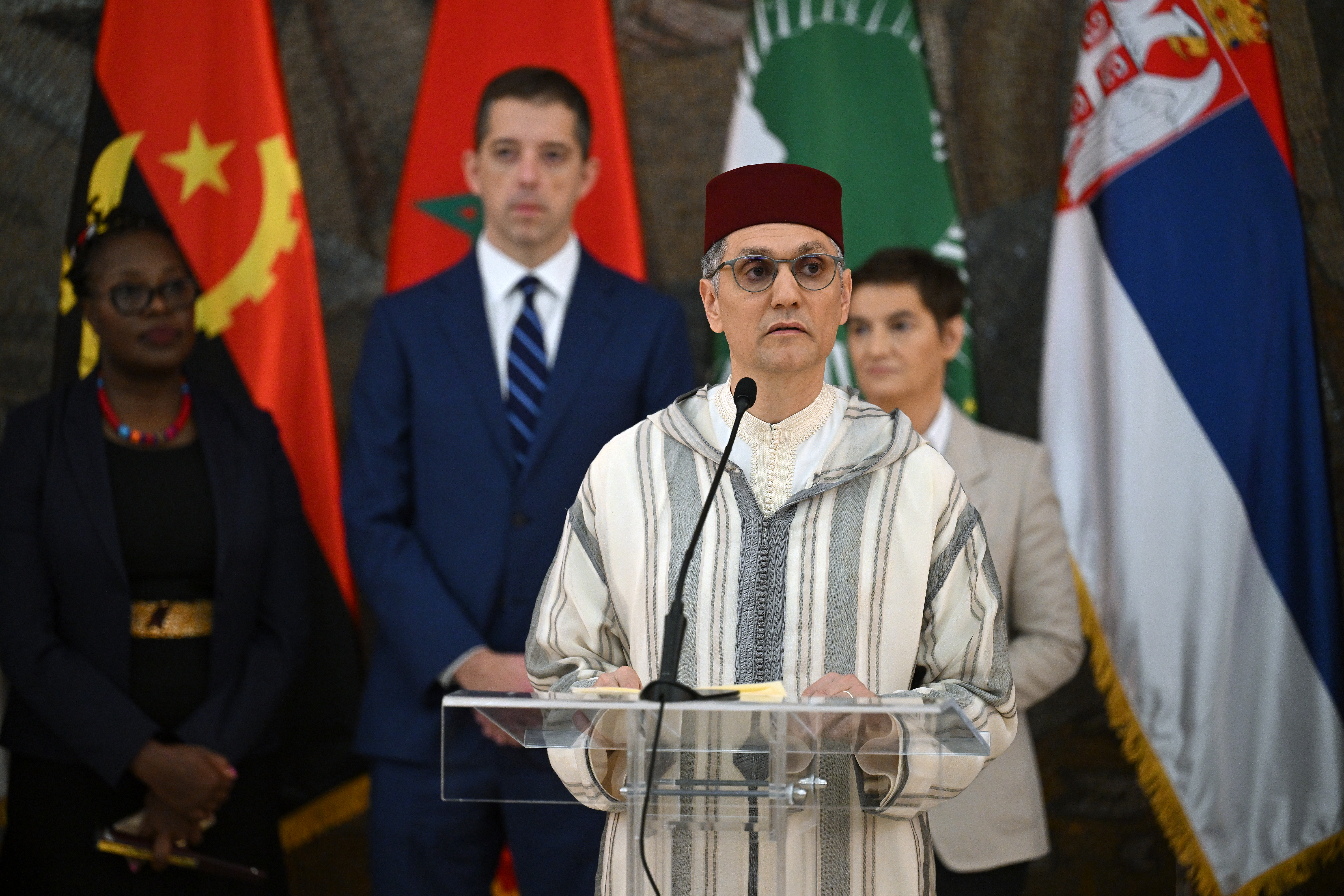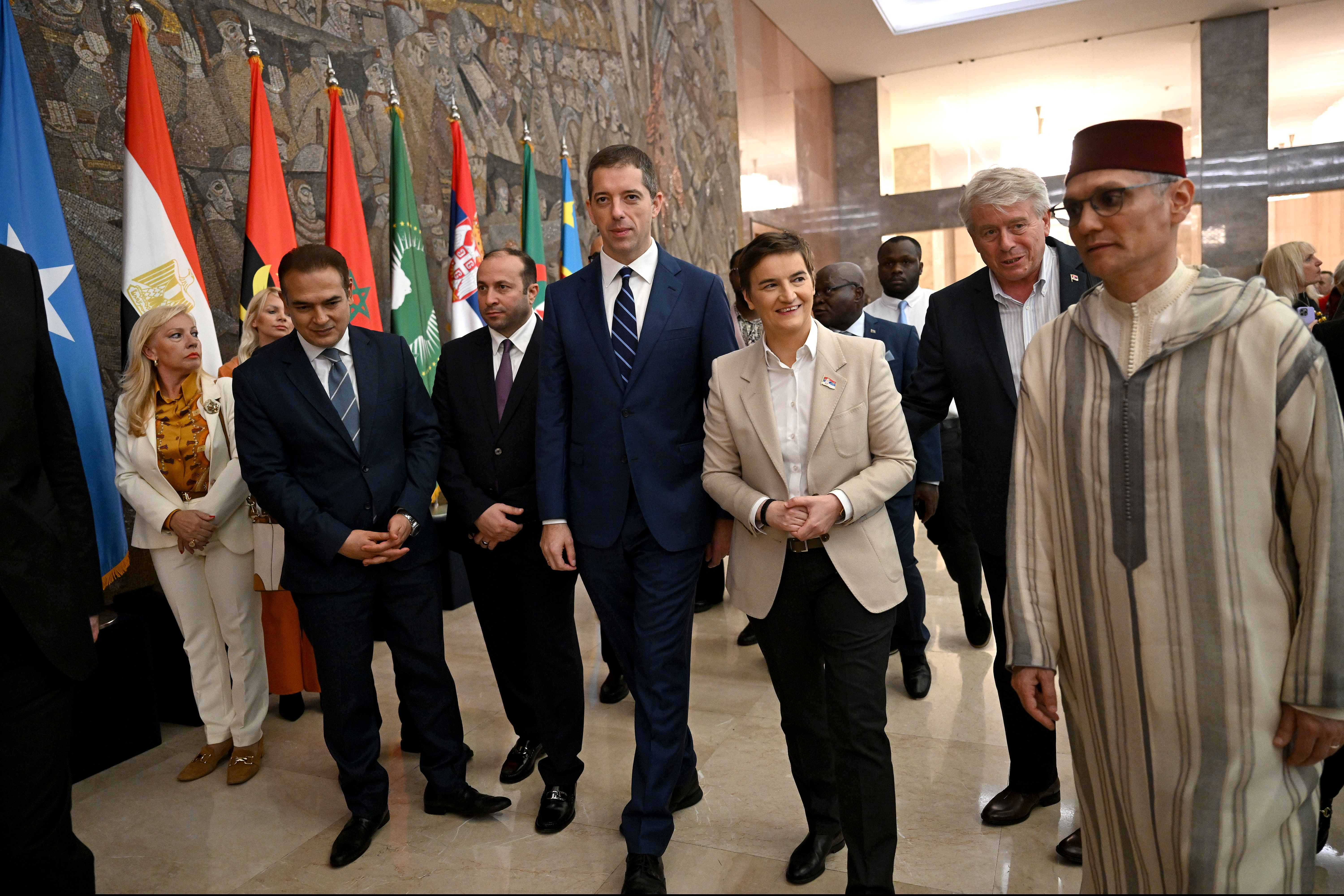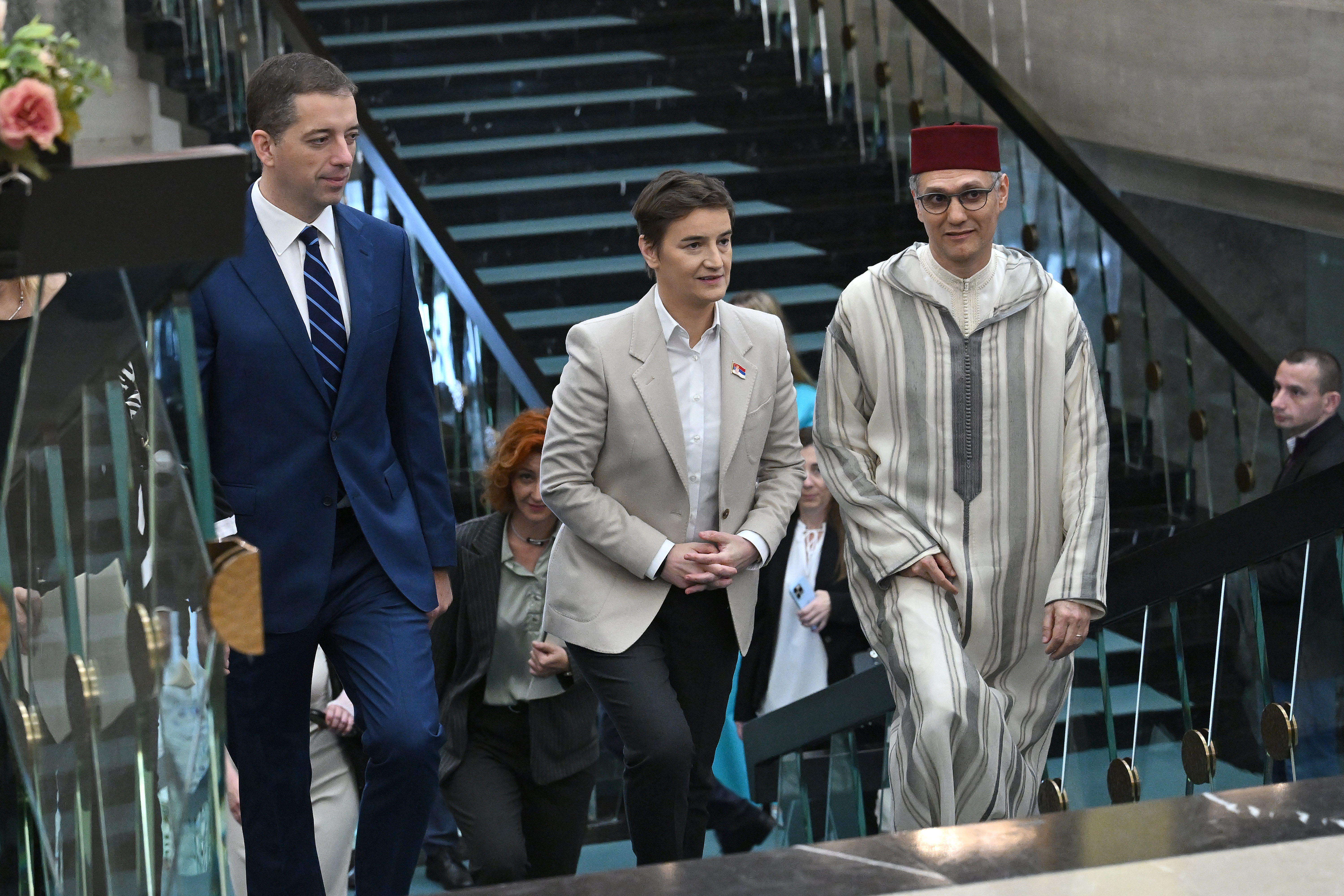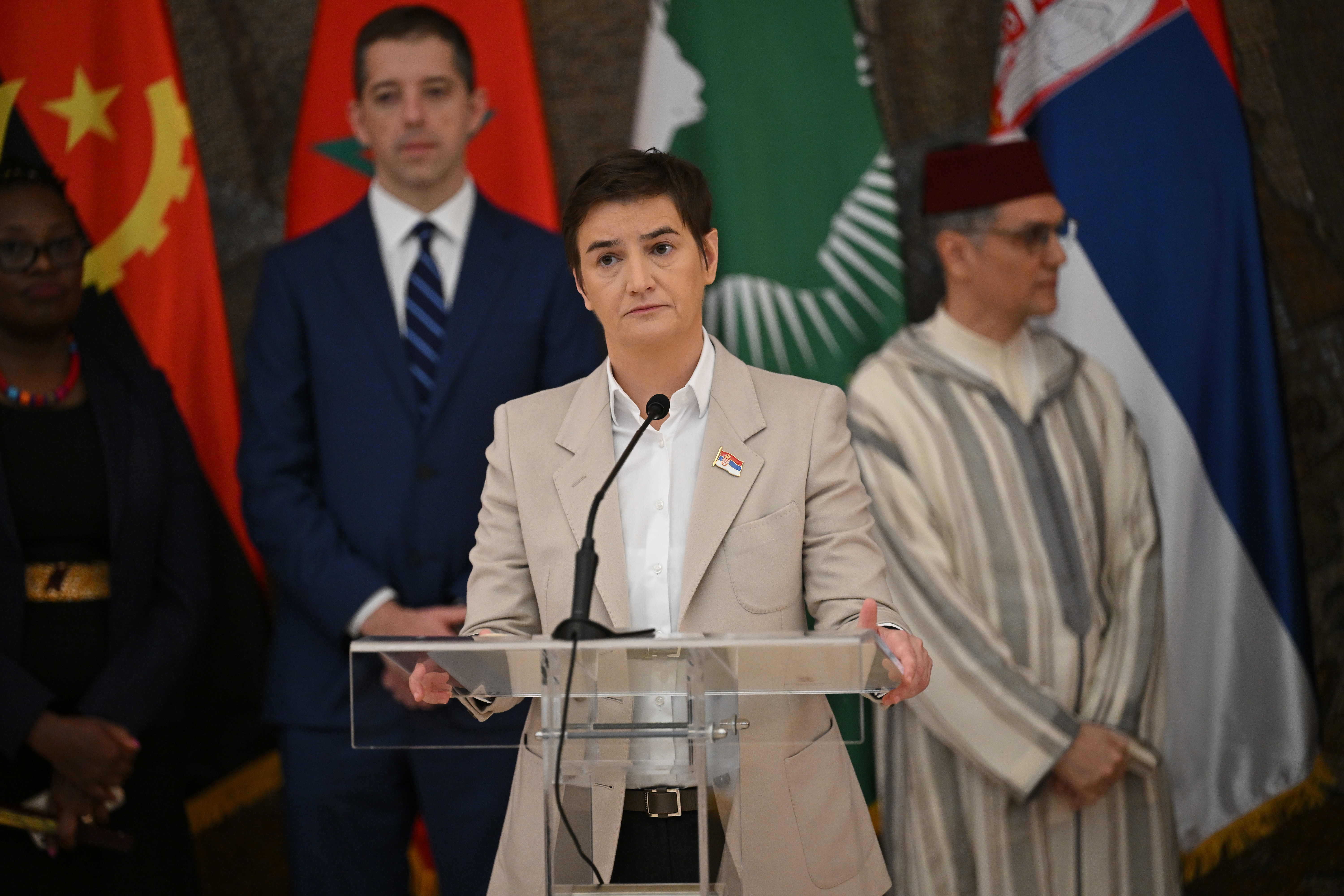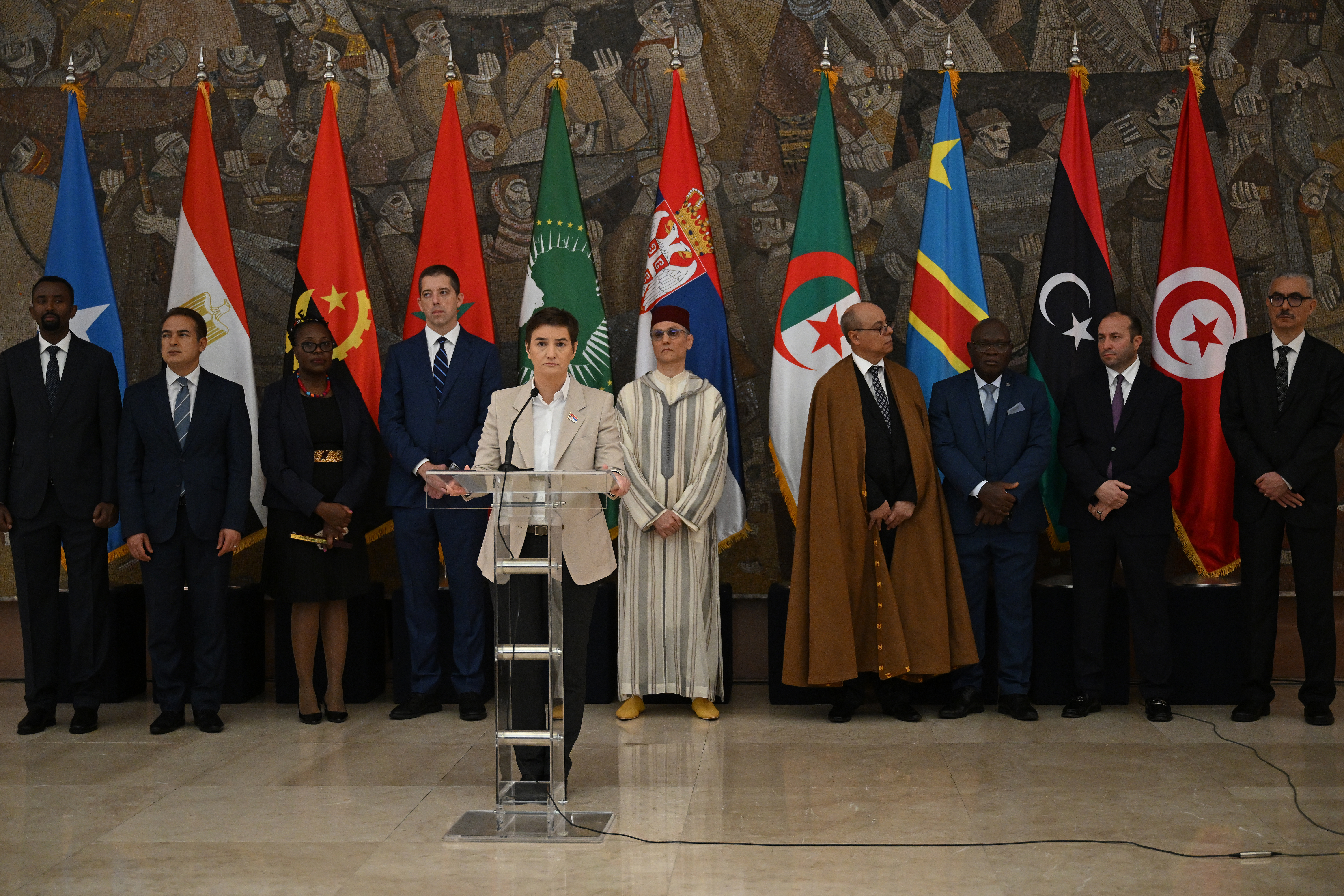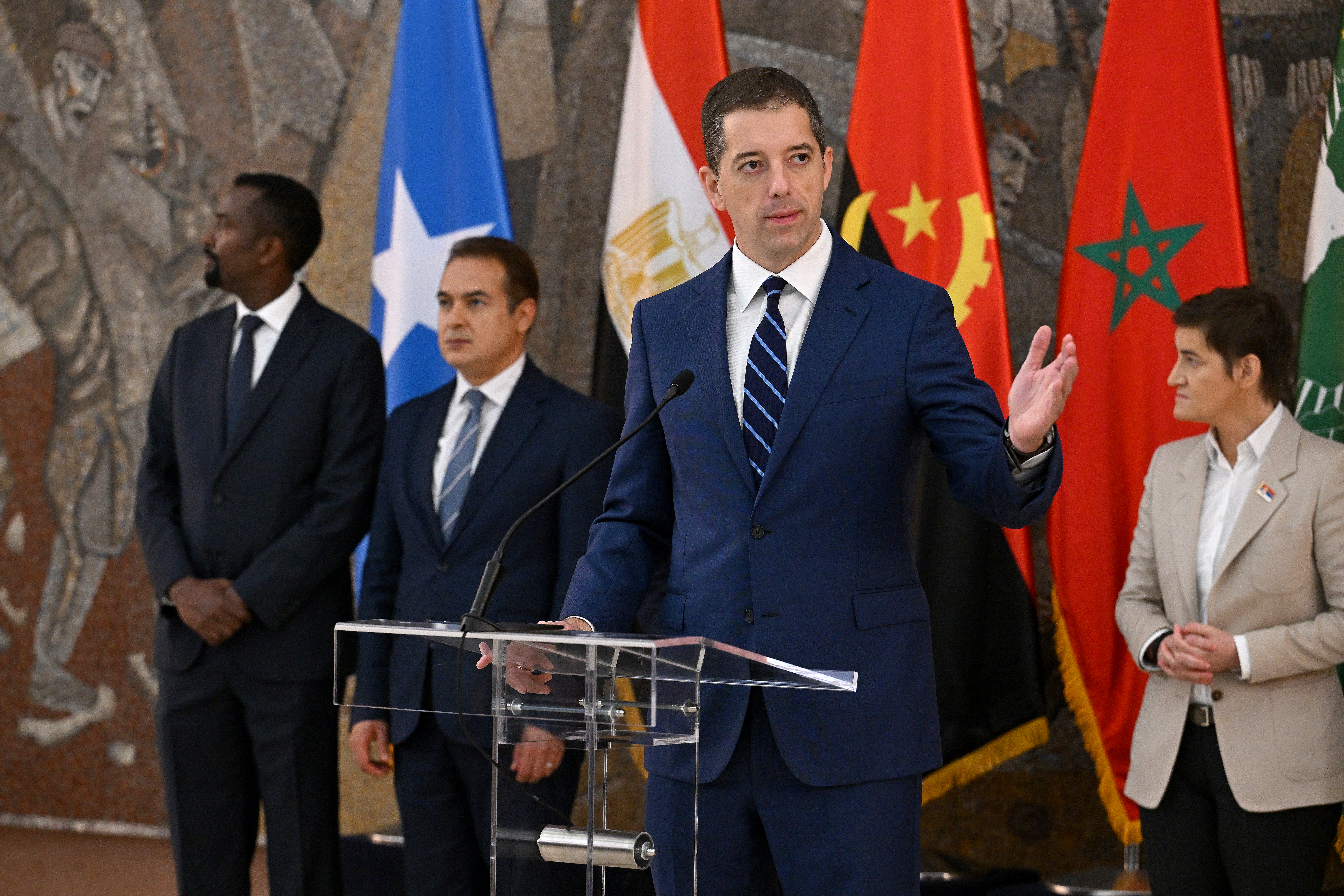Djuric: Not only that we share history with the countries of the African Union, but we are also bound by a common future
Minister Djuric emphasized that it was a great honour for him to speak at the event in the year marking 61 years since the beginning of African unification, the beginning of the process to create African unity, which Serbia had supported since its inception.
"At the beginning of the mandate of the new Government, I would like to share with all of you here today that we received clear instructions and guidelines from the highest state leadership to intensify efforts in promoting relations with brotherly and friendly countries in Africa. We share not only history with the countries of the African Union, but also a common future in which we will grow and develop together", said the head of Serbian diplomacy.
"I had the honour to represent Serbia with the President of Serbia, Aleksandar Vucic, at the recent session of the UN General Assembly, where an attempt was made, by creating a negative political campaign, to put a mark of genocide and shame on the country I represent. I wish to thank the African countries for the fact that 37 of 54 African countries refused to support the resolution", Djuric emphasized, and added that Serbia would not forget who its friends were.
Djuric said that we were proud to have the opportunity to welcome our friends from Africa in a country that had more than doubled its GDP in less than a decade and which opened its doors to them for the EXPO 2027 exhibition, where we wanted to see as many African countries as possible.
He pointed out that Serbia was proud of the friendship with African countries dating back to the former Yugoslavia and that this friendship would continue.
"The World in Serbia programme, as part of which students from a large number of African countries come to study in Belgrade, Nis, Kragujevac and other academic centres in Serbia, is a pledge to building bridges between our societies and our countries", the Minister said.
He pointed out that Serbia would continue with programmes of educational, cultural and economic cooperation, in the spirit of existing traditional relations, and that they could see our country as the gateway to Europe and the wider Euro-Mediterranean space.
Speaker of the National Assembly Ana Brnabic said that she was pleased to attend the celebration of Africa Day in Serbia, and conveyed the gratitude of President Vucic for the great courage shown by African countries during the vote at the UN General Assembly.
"As Minister of Foreign Affairs Marko Djuric said, out of 54 countries, as many as 37 stood by Serbia at the UN yesterday. This is close to 70 percent, because they recognized that this resolution is contrary to the Constitution of Bosnia and Herzegovina, that it was created in secret, without any consultation, without transparency and without the desire for an agreement that would contribute to reconciliation, while opening old wounds instead", Brnabic pointed out.
She added that she also wanted to thank the countries of Africa that respect the territorial integrity and sovereignty of Serbia and emphasized that this was the case with 43 countries.
"As many as 43 African countries, that is, 80 percent of all countries on the African continent, firmly stand by Serbia in respecting a fundamental principle of international law and the UN Charter, which is the inviolability of the territorial integrity of internationally recognized countries. This support is of inestimable importance to us, but it is important to emphasize that such support is also crucial for stability and peace in the world, because without respect for the principles of international law, the world would be ruled only and exclusively by the law of the stronger, and African countries know this perhaps better than any other in the world”, Brnabic underlined.
The Speaker of the Assembly said that 31 countries of the African continent abstained, while six countries voted against the resolution.
Ambassador Belhaj pointed out that the event also celebrated the 2017 decision of the Republic of Serbia to declare 25 May as the Day of Friendship between Serbia and the Peoples of Africa, which was a testimony to the solid and historic bonds of friendship between Belgrade and the African continent. The Ambassador said that such friendship was based on mutual respect, the invaluable support that the former Yugoslavia provided to many African countries in their struggle to end colonialism and build their nations, and, of course, the noble principles and values of the Non-Aligned Movement.
Speaking about the natural resources of the African continent, Ambassador Belhaj assessed that people were the most valuable resource, which is why the African Union declared this year the Year of Education, with the theme "Educate an African fit for the 21st Century": Building resilient education systems for increased access to inclusive, lifelong, quality and relevant learning in Africa".
He emphasized that in doing so, Africa counted on the support of friendly countries such as the Republic of Serbia, seeing that the roots of educational cooperation between Serbia and Africa can be traced back to the days of the Non-Aligned Movement, when the former Yugoslavia initiated numerous scholarship programmes for students from Africa in the 1960s and 1970s.
Africa Day commemorates the day when Heads of 32 independent states of the African continent met in Addis Ababa to sign the Charter that created the Organization of African Unity, which would grow into the African Union.

